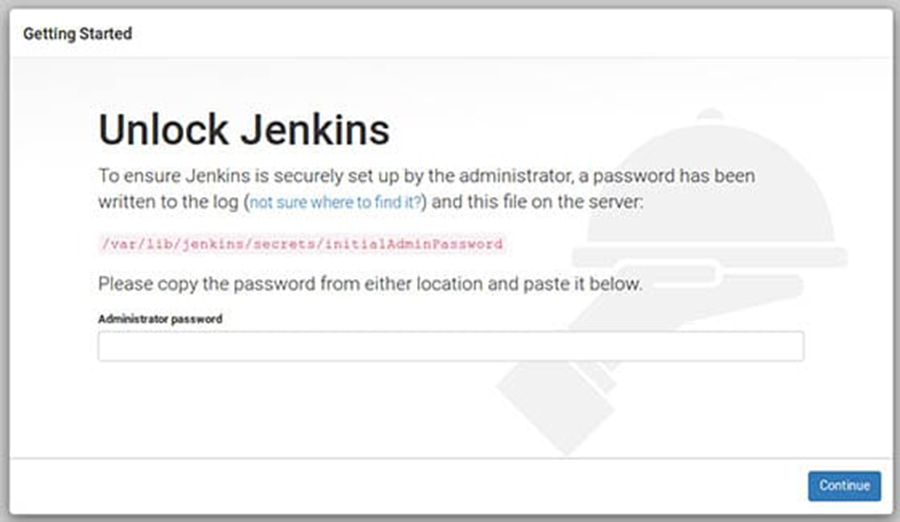Jenkins is an open source continuous integration tool written in Java. Jenkins provides continuous integration services for software development. It is a server-based system running in a servlet container such as Apache Tomcat. It supports SCM tools including AccuRev, CVS, Subversion, Git, Mercurial, Perforce, Clearcase and RTC, and can execute Apache Ant and Apache Maven based projects as well as arbitrary shell scripts and Windows batch commands.

Install Jenkins on Ubuntu 16.04 LTS
This article assumes you have at least basic knowledge of linux, know how to use the shell, and most importantly, you host your site on your own VPS. The installation is quite simple and assumes you are running in the root account, if not you may need to add ‘sudo’ to the commands to get root privileges. I will show you through the step by step installation Jenkins on a Ubuntu 16.04 (Xenial Xerus) server.
Step 1. First make sure that all your system packages are up-to-date by running these following apt-get commands in the terminal.
sudo apt-get update sudo apt-get upgrade
Step 2. Installing Java.
In this step, we will install Java 7 from a PPA repository and install python-software-properties:
apt-get install python-software-properties
Then you can add Java repository:
add-apt-repository ppa:openjdk-r/ppa
Update the Ubuntu repository and install the Java OpenJDK with apt command:
apt-get update apt-get install openjdk-7-jdk
Verify Java installation by typing the command below:
java -version
Step 3. Installing Jenkins.
Add the key and source list to apt:
wget -q -O - http://pkg.jenkins-ci.org/debian-stable/jenkins-ci.org.key | sudo apt-key add -
Create a sources list for Jenkins:
sudo sh -c 'echo deb http://pkg.jenkins-ci.org/debian-stable binary/ > /etc/apt/sources.list.d/jenkins.list'
After the cache has been updated, start proceed installation Jenkins:
sudo apt-get update sudo apt-get install jenkins
Start Jenkins service:
systemctl start jenkins
Jenkins will write log files to /var/log/jenkins/jenkins.log. You can also fine-tune the configuration.
Step 4. Installing and Configure Apache web server for Jenkins.
Install Apache web server on your system:
apt-get install apache2
Create a new virtual host directive in Apache. For example, create a new Apache configuration file named ‘jenkins.conf’ on your virtual server:
a2enmod proxy a2enmod proxy_http a2ensite jenkins touch /etc/apache2/sites-available/jenkins.conf ln -s /etc/apache2/sites-available/jenkins.conf /etc/apache2/sites-enabled/jenkins.conf nano /etc/apache2/sites-available/jenkins.conf
Add the following lines:
ServerName my.jenkins.id ProxyRequests Off ProxyPreserveHost On AllowEncodedSlashes NoDecode Order deny,allow Allow from all ProxyPass / http://localhost:8080/ nocanon ProxyPassReverse / http://localhost:8080/ ProxyPassReverse / http://my.jenkins.id/
Save and close the file. Restart the apache and jenkins service for the changes to take effects:
systemctl restart apache2 systemctl restart jenkins
Step 5. Accessing Jenkins.
Jenkins will be available on HTTP port 8080 by default. Open your favorite browser and navigate to http://yourdomain.com:8080 or http://server-ip:8080 and complete the required the steps to finish the installation. If you are using a firewall, please open port 8080 to enable access to the control panel. Default installation password can be found at /var/lib/jenkins/secrets/initialAdminPassword as showing in below image.

Congratulation’s! You have successfully installed Jenkins. Thanks for using this tutorial for installing Jenkins on Ubuntu 16.04 Xenial Xerus server. For additional help or useful information, we recommend you to check the official Jenkins web site.
